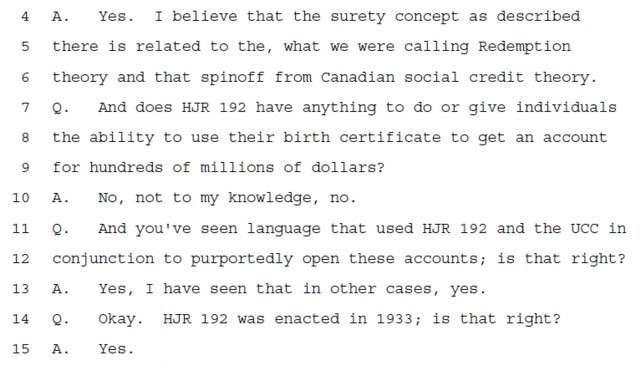
Originally Posted by
David Merrill

Thank you!
I have been explaining it in terms of classical thermodynamics for a while now. To impose that trusteeship upon the government trustee you have to describe the parameters of the trust. Usually this would require explaining trust law to an attorney. - Futile.
On the other hand, if you can get
them to testify about the trust structure and you are adept
at record-forming...
I find this exerpt from the walker case most telling regarding the inherent protectionism of the nexus to taxation/enslavement...
page 13
4 So what is the backing for these Federal Reserve
5 Notes, the legal tender paper? And the backing is the taxing
6 power of the United States. Federal Reserve Notes under the
7 Federal Reserve Act are defined as a full faith and credit
8 obligation of the United States. So that means that should
9 there be a default in payment of Federal Reserve Notes, the
10 government has the right to raise taxes to fully back the
11 notes and their -- I won't get into the technicality of how
12 that backing is done, but there is still a residual form of
13 backing of Federal Reserve Notes in the Fed's accounting
14 system today.
Signature endorsement, it seems, is a "technicality" not worthy of "getting into" on the record; I wonder why.






 Reply With Quote
Reply With Quote
 .
.



